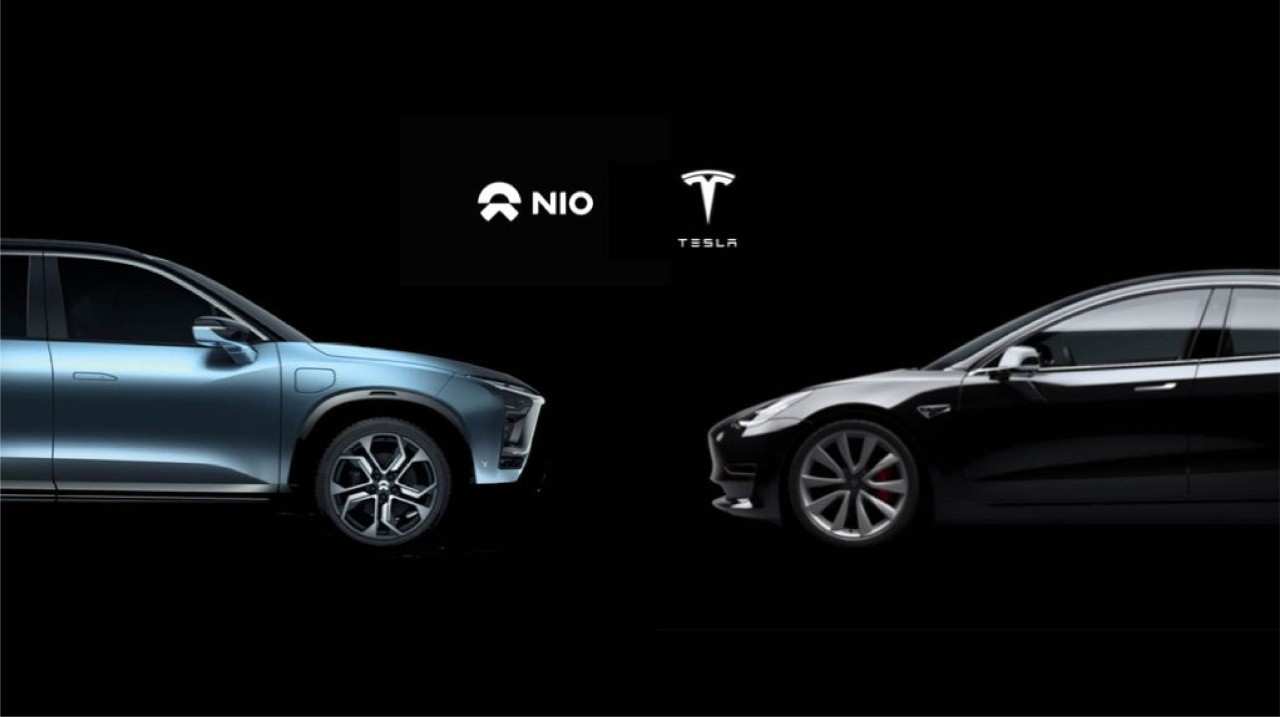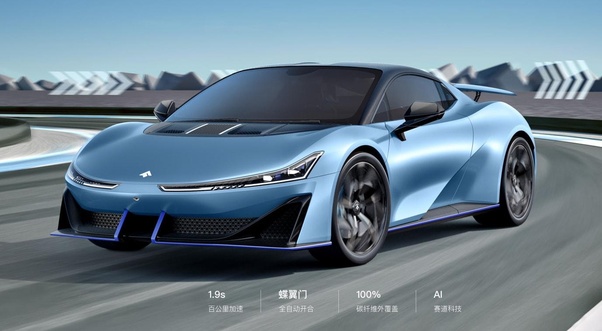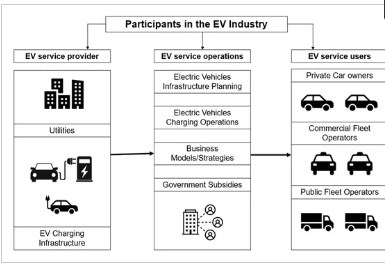
In the ever-evolving landscape of electric cars, the United States is making strategic moves to limit China’s influence in this burgeoning industry. As the world shifts towards sustainable energy solutions, electric vehicles (EVs) have taken center stage, and both global superpowers are vying for a dominant position in this green revolution. In this article, we’ll delve into the reasons behind the US’s efforts to curtail China’s role in the electric car market and the potential implications for the future.

Picture a world where cars aren’t just a means of getting from point A to point B, but rather, sleek, silent machines powered by electricity, leaving behind a trail of innovation and environmental consciousness. Electric cars, with their promise of reduced emissions and a cleaner future, have captured the imagination of countries worldwide. In this evolving narrative, China has emerged as a trailblazer, showcasing an impressive lead in the electric vehicle (EV) domain.
China’s prowess in electric cars extends beyond manufacturing; it encompasses significant investments in research, development, and infrastructure. The dragon nation has become synonymous with cutting-edge battery technology, electric propulsion systems, and a robust charging network. Consequently, China’s EV market has flourished, boasting a diverse array of electric models and a supportive ecosystem, including incentives for both manufacturers and consumers.
The United States, recognizing the pivotal role electric vehicles play in the global transition towards sustainable transportation, is eager to assert its influence in this burgeoning industry. The US envisions a future where electric cars are not just an environmental necessity but also a powerful economic driver. However, standing in the shadows of China’s dominance, the US is now strategizing to make electric vehicles a cornerstone of its automotive landscape.
The surge in popularity of electric cars can be attributed to a collective understanding that the traditional combustion engine, reliant on fossil fuels, is unsustainable. Climate change concerns, coupled with a desire to reduce air pollution in urban areas, have accelerated the shift towards greener alternatives. As nations seek to balance economic growth with environmental stewardship, the electric car has emerged as a symbol of progress—a symbol that both China and the United States want to claim as their own. In this race to an electric future, each country is vying not only for technological supremacy but also for the economic and environmental rewards that come with being at the forefront of this transformative movement.

The United States is concerned about its dependence on China for critical components of electric vehicles, such as batteries and rare-earth minerals. These components are integral to the production of EVs, and any disruption in the supply chain could have severe implications for the US automotive industry.
The electric car market is not only about reducing carbon footprints but also about economic competition. Both the US and China want to be at the forefront of this industry, not just for environmental reasons but also to boost their respective economies. Limiting China’s role allows the US to safeguard its economic interests and create a competitive advantage.
Electric vehicle technology is evolving rapidly, and being at the forefront of innovation is crucial. The US aims to maintain its technological leadership in the electric car sector, ensuring that it can shape the direction of future developments and set global standards.

The US government has increased its investments in research and development to foster innovation in the electric vehicle sector. This includes funding for battery technology, charging infrastructure, and advancements in electric propulsion systems.
The US is actively forming strategic alliances with automakers and technology companies to strengthen its position in the electric car market. By collaborating with key industry players, the US aims to create a formidable force that can compete with China’s dominance.
To encourage the adoption of electric vehicles domestically, the US government has implemented policy reforms and incentives. This includes tax credits for electric vehicle buyers, funding for charging infrastructure development, and regulatory measures to promote the production of electric cars within the country.
Recognizing the vulnerability of depending on a single source for critical components, the US is actively working to diversify its supply chain. This involves exploring alternative sources for batteries and rare-earth minerals, reducing dependence on Chinese imports.

The competition between the US and China in the electric car market has far-reaching implications for the global economy. The winner of this race stands to gain not only economic benefits but also significant geopolitical influence.
The rivalry between the US and China could drive unprecedented innovation and technological advancements in the electric vehicle sector. This competition may lead to breakthroughs that benefit the entire world by making electric vehicles more efficient, affordable, and environmentally friendly.
Both the US and China recognize the importance of reducing carbon emissions and transitioning to sustainable transportation. The outcome of their competition in the electric car market will play a crucial role in determining how quickly the world can transition to a greener and more sustainable future.
The US’s efforts to limit China’s role in the electric car market are driven by a complex interplay of economic, technological, and geopolitical factors. As the world witnesses this dynamic competition unfold, it’s essential to keep an eye on the potential implications for the global automotive industry, technological innovation, and the overall pursuit of a more sustainable future. The race for dominance in electric vehicles is not just a regional competition but a pivotal moment that will shape the future of transportation on a global scale.
Also, you can check, Breaking Barriers: Cardinal Turkson’s Bold Call for Understanding Homosexuality in a Changing World
Interesting…
Great post…
Wonderful job…
Oh…Really!!!! Then it’s fabulous…
Impressive…
Surprising news …
world moving towards renewable energy great news
World must needed this
Remarkable decision 👏
Impressive 👍
Great decision for environment
New era begins
Keep the environment neat and clean
Mind-blowing decision 👏
Tremendous job 💪
Now global issues resolve
Hope really comes soon